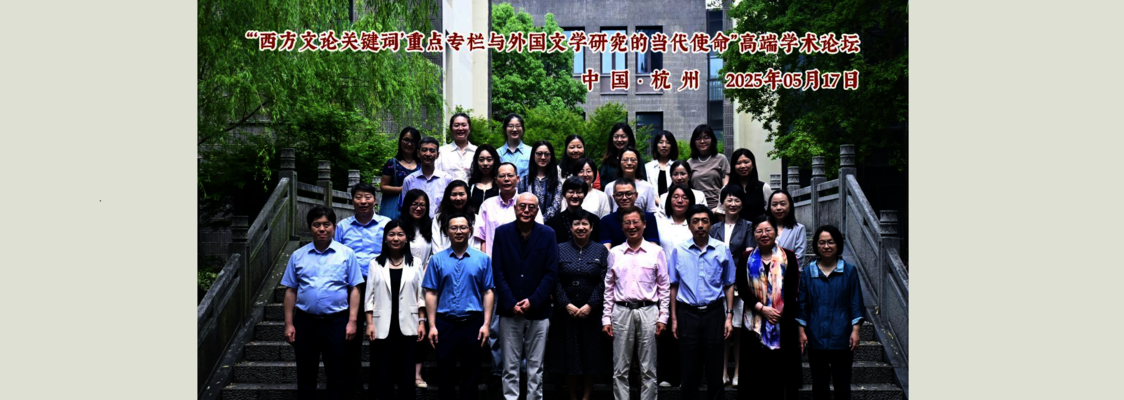- 如何撰写资政报告
- “Taming of the Shrew”: How to Make the Cha
- The Semantics-Pragmatics Interface from an I
- “如画”何以“崇高”:也谈罗斯金审美趣味中的
- 外语学习者同译词学习“同时僵化”假设
- 安妮·普鲁“怀俄明三部曲”中反怀旧的哥特西部
- 哈姆莱特延宕内涵再审视
- 日汉翻译系统探析
- Navigating Advanced Academic Writing and Pub
- AI对文学的赋能与挑战
- 《美国牧歌》中双重记忆的罅隙与身份错位——兼
- Thomson's Palemon and Lavinia, Iconic Narrat
- Towards a Better Understanding of Explicit a
- 福柯与控制论:系统、控制和治理
- 研究体系与学术创新
- A Study of the Caribbean Think Tanks
- 融通中外—外交话语与翻译艺术
- 特多中华总会的初心与使命
- 讽寓抑或隐喻?——《聊斋志异》中的幽冥世界与
- 国际组织中的议程设置--以小岛屿发展中国家作为
时间:2024年11月15日9:40
地点:恕园12-203
主讲内容:
The presentation attempts to explain the unique features of chatbot interactions by relating it to intercultural interactions and present ways to develop effective communicative strategies to interact with the chatbot. It is argued that there are significant differences between the monolingual Gricean pragmatics on the one hand, and the co-construction-based intercultural pragmatics and the human-machine pragmatics of chatbots on the other. The unique nature of intercultural interactions and human agent – artificial agent interactions generate new pragmatic features and give new face to existing pragmatic features and strategies. The presentation claims that in intercultural and human-machine interaction the key is the nature of co-constructed interagency which is created in the process of common ground building with reliance on context. However, while in intercultural interactions all participants have the ability to initiate, direct, and manipulate communicative acts, in chatbot interactions the leading, initiating role is had by the human agent in “socializing” the machine agent. In Gricean pragmatics, which is based on conventions and norms pragmatic effect works top-down while in chatbot pragmatics this effect usually goes bottom-up as temporary norms and context-interpretations are co-constructed and human-agent led traits develop. The question is how to develop effective communicative strategies through prompting. The discussion and sample analysis highlight the interplay and nature of contribution of the experience-based cooperation of human agent and the data-driven contribution of artificial agent to the development of a new kind of interagency.
主讲人简介:
Istvan Kecskes is a Distinguished Professor of the State University of New York at the Albany campus. He is the President of the American Pragmatics Association and the CASLAR (Chinese as a Second Language Research) Association. He is the founder and co-director of the Barcelona Summer School on Bi- and Multilingualism (until 2016), and the founder and co-director of Sorbonne, Paris – SUNY, Albany Graduate Student Symposium.
His book “Foreign language and mother tongue” (Erlbaum 2000, co-authored by his wife, Dr. Tunde Papp) was the first that described the effect of the second language on the first language. Kecskes’ book “Intercultural Pragmatics” (Oxford University Press, 2014) is considered a groundbreaking monograph that shapes research in the field. His latest books are “Key Issues in Chinese as a Second Language” (Routledge 2017), “English as a Lingua Franca: The pragmatic perspective” (Cambridge University Press 2019), “Cambridge Handbook of Intercultural Pragmatics” (CUP 2022). The book “The socio-cognitive approach to communication and pragmatics” (Springer 2023) is a summary of his socio-cognitive theory of pragmatics that has received great attention all over the world.
Prof. Kecskes is the founding editor of the journal “Intercultural Pragmatics” and the Mouton Series in Pragmatics as well as the bilingual journal “Chinese as a Second Language Research”. In 2020 he established a new book series for early career scholars “Routledge Research on New Waves in Pragmatics”. He received a Senior Fellowship from the Rockefeller Foundation Research Center in Bellagio, 2004, a Senior Fellowship from the Mitteleuropa Foundation, Bolzano, Italy, 2005, a Honorary Professorship from Zhejiang University, 2009, Yunshan Chair Professorship from Guangdong University, 2011, a Distinguished Visiting Professorship from Monash University, Melbourne, 2013 and a Guest Professorship from the University of Messina in May, 2017, 2019 and 2022. He also received an Honorary Doctorate from The National Research Tomsk State University, Russia in 2021 where a Graduate Student Award was named after him in 2016.







